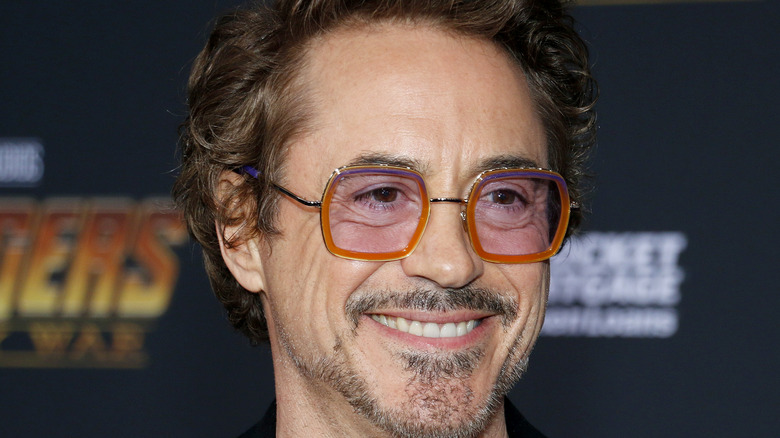The MCU Theory That Has Fans Buzzing About The Timelines
Twenty-seven movies into any franchise will cause immense worldbuilding and crossover. It will also unavoidably cause inconsistencies in the timeline. When you have nearly 30 films and almost as many directors attempting to tell original stories and create original characters within the same universe, they are bound to step on each other's toes (via Market Research Telecast). The Marvel Cinematic Universe is not above this gaff, as many inconsistencies exist in the timeline, from "Captain America: The First Avenger" being set in World War II, to "Spider-Man: No Way Home" taking place in the future.
Some of the more glaring inconsistencies within the MCU timeline have been pointed out by fans and exhaustively laid out for others to read in articles and conversation threads. However, with the release of "Spider-Man: No Way Home," the 27th and most recent MCU release, and "Hawkeye" on Disney+, fans are beginning to wonder where exactly viewers are in the world. Since the five-year-jump after "Avengers: Infinity War," there have been questions about what year everything takes place. One Reddit theory, in particular, gives us the idea that the MCU is not five years ahead of us as viewers logically think, but instead, we are much closer than expected.
The MCU isn't 5 years ahead of us
After "Spider-Man: Far From Home," there were questions about when we as an audience in the real world would catch up with the timeframe in MCU. Would we? Or would the MCU just run five years in the future? The MCU continues to put the movies out as if they are in "Present Day," as stated in "Eternals" multiple times. But what date is that actually referring to?
u/camo_17 posted their theory on the matter on Reddit, lining out that while "Avengers: Endgame" was released in 2019, the jump took place in 2018, taking the timeline to 2023, not 2024. They then posited that the following movies are set in 2023, allowing our real-world timeline to catch up with the MCU. u/philosopher3 was among the users who agreed with this, noting that the pandemic "helped us catch up in real life to the MCU," as most of the franchise's current films were delayed by about a year.
On the other hand, u/Romnonaldao argued that "Spider-Man: Far From Home" occurs a full eight months after "Avengers: Endgame," in 2024. Therefore, as of the end of "Hawkeye," the MCU sits at the Christmas season in 2024, a full year ahead of the original post's theory.
Whatever timeframe the MCU is on right now, with "Dr. Strange and the Multiverse of Madness" on the horizon, it is clear that anything goes, and the entire franchise could look completely different by the end.

